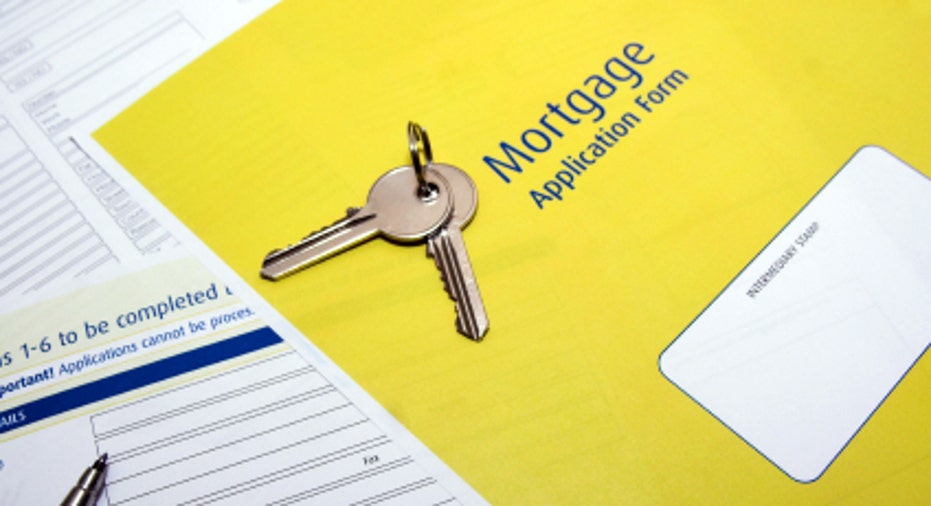Mortgages Reach Highest Levels in 2 Years

Mortgage rates spiked again this week and reached their highest levels in two years, ruining refinancing plans for many homeowners while anxious homebuyers try to beat the clock.
The benchmark 30-year fixed-rate mortgage rose to 4.66%, compared with 4.48% last week, according to the Bankrate.com national survey of large lenders. The mortgages in this week's survey had an average total of 0.28 discount and origination points. One year ago, that rate stood at 3.79%. Four weeks ago, it was 4.14%.
The benchmark rate on the 30-year fixed has risen more than a full percentage point since May 1 when the rate stood at 3.52%. The last time the 30-year fixed was this high was July 27, 2011, when the rate was 4.74%.
The benchmark 15-year fixed-rate mortgage rose to 3.75% this week, compared with 3.62% last week. The 15-year fixed is at its highest level since July 2011. The benchmark 5/1 adjustable-rate mortgage rose to 3.63% from 3.48%, and is at its highest level since April 2011. The benchmark 30-year fixed-rate jumbo mortgage rose to 4.82% from 4.66%. The last time the jumbo was higher was March 21, 2012.
Compare mortgage rates in your area
Weekly national mortgage survey
Results of Bankrate.com's July 10, 2013, weekly national survey of large lenders and the effect on monthly payments for a $165,000 loan:
30-year fixed 15-year fixed 5-year ARM This week's rate: 4.66% 3.75% 3.63% Change from last week: +0.18 +0.13 +0.15 Monthly payment: $851.79 $1,199.92 $752.95 Change from last week: +$17.72 +$10.62 +$13.87
Last week, rates had eased a bit, but a stronger-than-expected monthly jobs report caused rates to climb again. The economy added 195,000 new jobs in June, according to the Labor Department. That's more than the 160,000 that economists had expected. And to investors, it's another sign that the Federal Reserve will soon cut back on its bond-purchasing program.
Forget rates in the 3s
It's unlikely rates will fall much unless the U.S. economy slows down significantly or the Fed announces that it will continue to spend $85 billion per month in bond purchases, says Derek Egeberg, a branch manager at Academy Mortgage in Yuma, Ariz.
As Fed Chairman Ben Bernanke has said, the Fed might reduce the size of the bond purchases this year. But minutes of the latest Federal Reserve policy meeting, released Wednesday, show members of the Federal Open Market Committee have mixed opinions about when to end the program.
"All participants but one judged that it would be appropriate to continue purchasing both agency (mortgage-backed securities) and longer-term Treasury securities," according to the minutes. "About half of these participants indicated that it likely would be appropriate to end asset purchases late this year. Many other participants anticipated that it likely would be appropriate to continue purchases into 2014."
If the Fed were to announce that it won't slow the purchases until next year, mortgage rates would likely fall. But borrowers shouldn't count on that, mortgage experts say.
"I'm seeing rates in the high 4s right now," Egeberg says. "Even if they come down, I don't think rates are going to come any lower than mid 4s."
Is it too late to refinance?
Homeowners who were considering refinancing but didn't lock a rate probably missed their chance, depending on what rate they pay now, Egeberg says.
"Half of my refinances will disappear," he says.
The volume of refinance applications has been declining for several weeks as a result of the higher rates. Refinance applications decreased 4% from one week earlier and have reached their lowest level since July 2011, according to the Mortgage Bankers Association weekly survey.
But for homeowners paying 6% on their loans or even high 5s, there's still time, says Pava Leyrer, president of Heritage National Mortgage, in Grandville, Mich.
"Some homeowners were waiting for prices to come up so they could refinance," she says. "If you have a bigger loan, that 1% can still be worth it."
Homebuyers feel the pressure
Higher rates also are creating a sense of urgency among homebuyers, as they watch home prices climb and encounter bidding wars, Egeberg says.
"I'm seeing a lot more interest from buyers, but there's no inventory," he says. "They'll put an offer on a home, and there are six other offers, and the seller concessions are starting to go down." Don't let go of your low rate
If you have a home under contract to purchase and have locked a rate, do everything in your power to close on time, as closing delays could cost you a higher rate, Leyrer says.
"Make sure you know when your lock expires, and stay in contact with your broker," she says.
Following up with your loan officer or broker by email every two days or at least three times a week is reasonable, she says. When your lender asks for additional documentation, consider that an urgent request, and act on it as soon as possible.
If the inevitable happens and your rate lock expires before closing, consider buying an extension. A lock extension for a $200,000 would cost anywhere from $250 to about $400, she says.
"Nearly every lender will allow an extension," she says. "But normally they only allow one, so you need to decide how many days and be realistic."



















